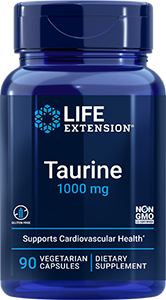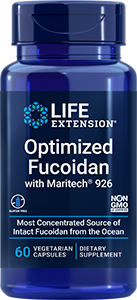|
|
|
Tuesday, September 15, 2015
The August 12, 2015 issue of the Journal of Agricultural and Food Chemistry documents the findings of Quebec's Laval Université of an antibacterial effect for a polyphenol-rich extract of blueberry (Vaccinium angustifolium) against Fusobacterium nucleatum—a bacterium associated with various forms of periodontitis. In addition, blueberry showed an ability to combat inflammation caused by exposure to the bacterium.
Bacterial biofilm or plaque formation on the teeth leads to gum disease that can result in periodontitis, necessitating antibiotic therapy. Authors Amel Ben Lagha and colleagues observe that Fusobacterium nucleatum, in addition to being associated with periodontitis, can also cause other infections, including inflammatory bowel disease, endocarditis and brain abscesses.
Blueberry polyphenols have shown an ability to combat bacteria in the urinary tract; however, their effect in periodontal disease had not been investigated. The current research revealed an antibacterial effect for blueberry against F. nucleatum, which the researchers suggest may be due to blueberry polyphenols' iron-chelating property. The extract also showed an ability to inhibit F. nucleatum biofilm formation.
In other experimentation, blueberry extract dose-dependently reduced the activation of nuclear factor-kappa beta (NF-KB) by F. nucleatum in human monocytes, indicating reduced inflammation. Pretreatment of F. nucleatum-stimulated macrophages with blueberry extract was shown to reduce the secretion of the cytokines interleukin-1beta, tumor necrosis factor-alpha and interleukin-6, as well as matrix metalloproteinases (MMPs) 8 and 9, which are associated with periodontal tissue destruction.
"We showed that polyphenols in a lowbush blueberry extract are active against the two main etiologic components of periodontitis," the authors conclude. "On the one hand, the blueberry extract inhibited the growth and biofilm formation of the periodontopathogenic bacterium F. nucleatum. On the other, it reduced the secretion of cytokines and MMPs by macrophages by blocking the activation of the NF-KB signaling pathway. This dual action of lowbush blueberry polyphenols suggests that they may be promising candidates for novel therapeutic agents."
|
|
|
| |
 |
|
What's Hot |
|
|
|
Blueberries could help protect against metabolic syndrome effects |
|
|
|
 |
|
| |
Researchers from the University of Maine report a protective effect for wild blueberries against some of the adverse effects related to metabolic syndrome, which increases the risk of heart disease and diabetes. The findings were described in an article published on November 6, 2013 in Applied Physiology, Nutrition, and Metabolism. "The metabolic syndrome is a group of risk factors characterized by obesity, hypertension, inflammation, dyslipidemia, glucose intolerance and insulin resistance, and endothelial dysfunction," explained study coauthor Dorothy Klimis-Zacas, who is a professor of clinical nutrition at the University of Maine.
The study tested the effect of a blueberry-enriched diet in a rat model of metabolic syndrome. Thirty-six obese rats and an equal number of lean animals received a diet containing the human equivalent of two cups per day blueberries or a control diet for eight weeks. Aortic vessel vasoconstriction and vasorelaxation, which evaluate endothelial function, and other factors were assessed at the end of the treatment period. "Endothelial dysfunction is a landmark characteristic of metabolic syndrome, and the obese Zucker rat, an excellent model to study the metabolic syndrome, is characterized by vascular dysfunction," Dr Klimis-Zacas observed. "The vascular wall of these animals shows an impaired response to vasorelaxation or vasoconstriction which affects blood flow and blood pressure regulation."
Obese rats underwent improvements in the balance between constricting and relaxing factors, indicating better endothelial function. "We have previously documented the cardiovascular benefits of a polyphenol-rich wild blueberry in a rat model with impaired vascular health and high blood pressure," Dr Klimis-Zacas noted. "Our new findings show that these benefits extend to the obese Zucker rat, a widely used model resembling human metabolic syndrome."
Dr Klimis-Zacas concluded that "by normalizing oxidative, inflammatory response and endothelial function, regular long-term wild blueberry diets may also help improve pathologies associated with the metabolic syndrome."
|
|
|
| |
 |
|
Life Extension Clinical Research Update
Effects of Nutritional Supplements on Cognition, Mood, and Fatigue |
|
|
|
Life Extension is sponsoring a study to assess the effects of nutritional supplements in support of cognition, mood and fatigue in individuals with memory complaints, an altered mood and/or feelings of fatigue within the past six months.
If you or someone you know is:
- Between 40-70 years of age
- Normal weight to overweight (BMI 18.5–29.9)
- In good health
- Experiencing memory complaints, an altered mood, and/or feelings of fatigue (within the past six months)
- Currently drinking no more than one cup of coffee a day
- Able to comply with all study procedures and visits
Qualified participants will receive at no cost during the trial:
- Study product
- Blood tests
- Blood pressure evaluations
- Up to $250 for time and travel expenses
- A $50 referral bonus is also available.*
Please call 1-866-517-4536 for further information and to see if you qualify.
*If you refer someone who enrolls in a study and completes their final visit with closeout procedures, you will be compensated the amount noted for the study.
https://www.lifeextension.com/clinicalresearch/ClinicalTrials.htm |
|
|
|
|
 |
|
Health Concern
Periodontitis and cavities |
|
|
Periodontal diseases, including gingivitis and periodontitis, are inflammatory diseases affecting the supporting structures that anchor teeth in place (periodontium). Gingivitis and periodontitis are related conditions; if left untreated, gingivitis [inflammation of the gingival tissue (gums)] can progress to periodontitis, a more serious condition. Gingivitis is treatable and reversible, while periodontitis is irreversible and can lead to tooth loss.
Because of the association between gum disease and systemic inflammation, researchers have begun looking at anti-inflammatory nutrients in the context of gum disease. In one study, 30 adults with gum disease were given a variety of polyunsaturated fatty acids, including omega-3 fatty acids from fish oil (up to 3000 mg daily) and omega-6 fatty acids from borage oil (up to 3000 mg daily). At the end of the study, clinically significant improvements were measured in both gingival inflammation and depth of gum pockets (Rosenstein 2003). Another preliminary human study found that omega-3 fatty acids tended to reduce inflammation, but called for more thorough research (Campan 1997). However, in light of the established connection between omega-3 and omega-6 fatty acids and inflammation, along with their lack of side effects, it is reasonable for people with gum disease to consider using these supplements. Other anti-inflammatory supplements include ginger and curcumin, although neither of these has been studied in the context of inflammatory gum disease.
|
|
|
| |
 |
|
Latest Products |
|
|
|

|
Taurine, 1000 mg, 90 vegetarian capsules
Item #01827
|
|
Taurine, a free amino acid, has been described by scientists as "one of the most essential substances in the body." But as we age, taurine levels decline.
Promising research has found that taurine can promote new brain cell formation in the area of the brain associated with learning and memory.
Past research has also shown the ability of taurine to maintain and support:
- Cardiovascular health
- Insulin sensitivity
- Modulation of the immune system
- Regulation of the central nervous system
- Liver function
- Eye health
- Hearing function
|
|
|

|
Optimized Fucoidan with Maritech® 926, 60 vegetarian capsules
Item #01513
|
|
|
In recent years, scientific interest has intensified around fucoidan, a little-known molecule found primarily in edible seaweeds native to the Japanese diet. Nearly 900 published studies indicate its power to promote healthy immune function, cell-to-cell communication, and tissue maintenance.
Many experts now believe fucoidan is one of the key nutrients responsible for the exceptionally long, healthy lives enjoyed in Okinawa, Japan … which for decades boasted the world's highest concentration of centenarians (individuals at least a century old).
Maritech® 926 fucoidan is sourced from hand-harvested, wild seaweed from the pristine ocean waters of Patagonia. A cutting-edge water extraction process ensures fucoidan's delicate molecular structure is delivered intact, to provide the critical nutritional benefit of Undaria pinnatifida, the species of seaweed used in a majority of scientific fucoidan studies. |
|
|
|
 |
|
Related Life Extension Magazine® Articles |
|
|
|
|
|
|







